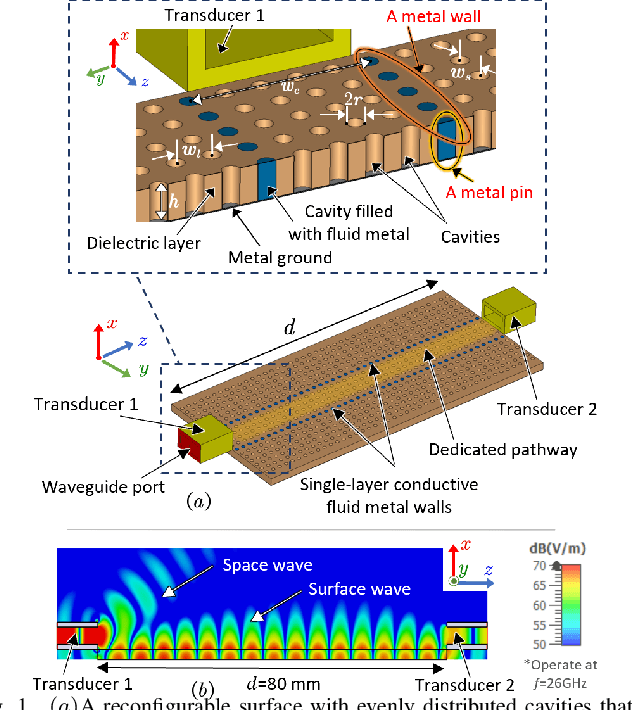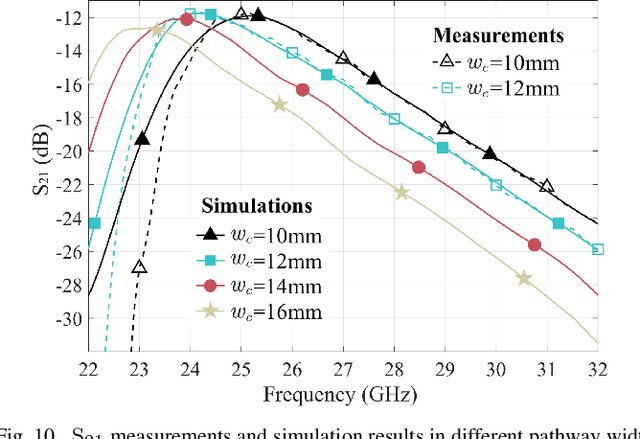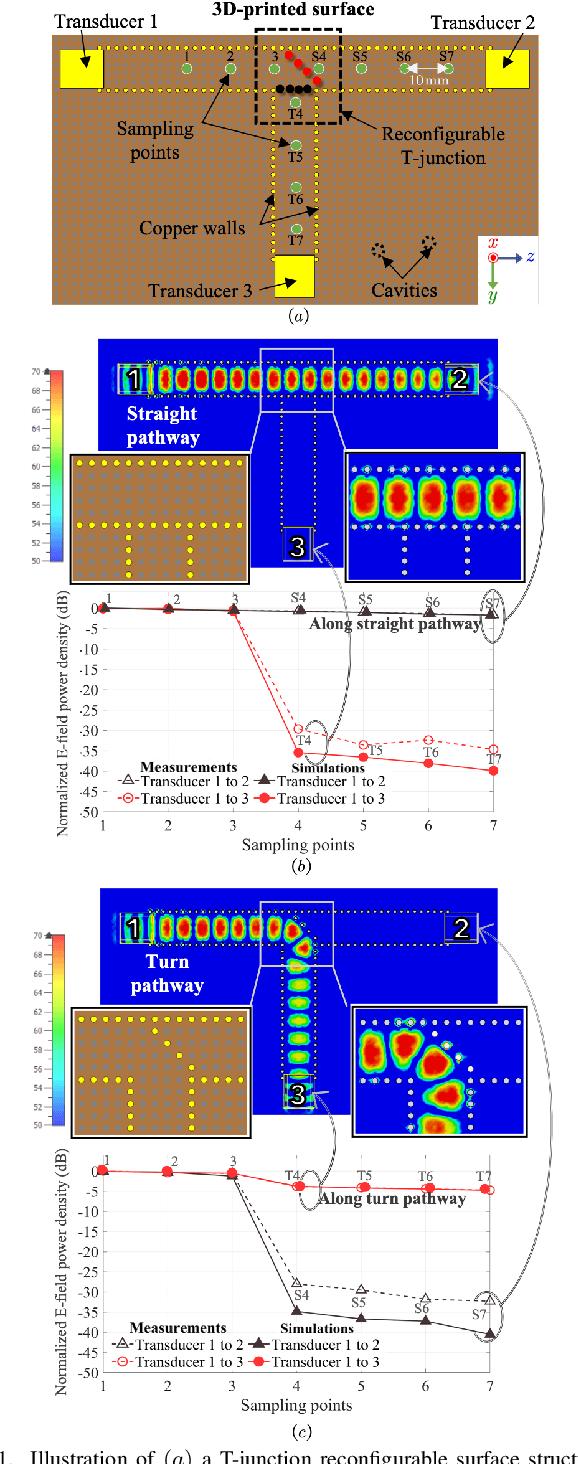C. B. Chae
On Propagation Characteristics of Reconfigurable Surface-Wave Platform: Simulation and Experimental Verification
Apr 27, 2023



Abstract:Reconfigurable intelligent surface (RIS) as a smart reflector is revolutionizing research for next-generation wireless communications. Complementing this is a concept of using RIS as an efficient propagation medium for potentially superior path loss characteristics. Motivated by a recent porous surface architecture that facilitates reconfigurable pathways with cavities filled with fluid metal, this paper studies the propagation characteristics of different pathway configurations and evaluates the reconfigurable surface-wave platform by using a commercial full electromagnetic simulation software and experiments. This paper also looks into the best scheme to switch between a straight pathway and a $90^\circ$-turned pathway and attempts to quantify the additional path loss when making a turned pathway. Our experimental results verify the simulation results, showing the effectiveness of the proposed reconfigurable surface-wave platform for a wide-band, low path loss and highly controllable communication.
 Add to Chrome
Add to Chrome Add to Firefox
Add to Firefox Add to Edge
Add to Edge